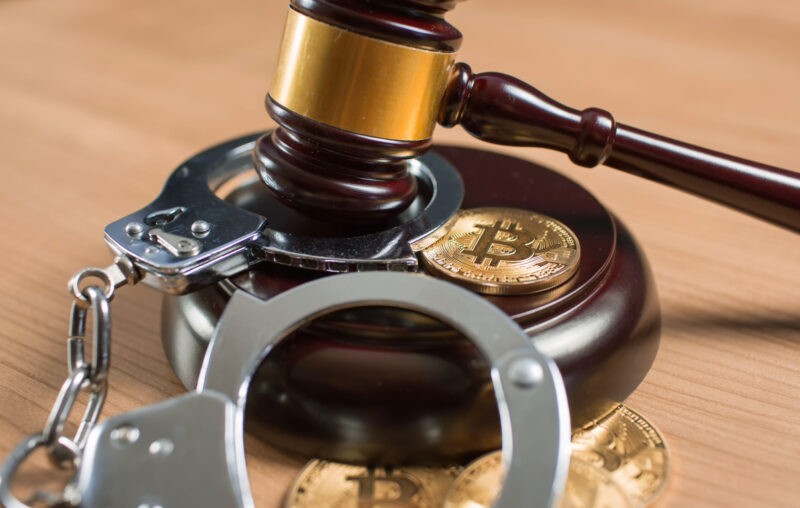The SEC’s Illegal War on Crypto

The Securities and Exchange Commission (SEC) is waging an illegal war on the cryptocurrency industry.
The SEC recently charged crypto exchanges Binance and Coinbase with facilitating the trade of unregistered securities. Yet the opacity of the statute, as it pertains to crypto and the SEC’s arbitrary and contradictory application, have made compliance with the law impossible.
Despite charging multiple parties with issuing and trading unregistered securities, the SEC has failed to formally define what is or is not a security. Rather than an official definition, the agency relies on legal precedents, primarily the Howey test, to determine whether financial instruments are considered securities. The proper application of these rules to crypto tokens, however, remains unclear, and the SEC refuses to provide further guidance.
To create a formal definition, the SEC would need to follow a notice-and-comment process by which they make a public rule proposal, get feedback from the public, and then issue a final rule based on those comments. So far, the agency has refused to do so.
SEC Chair Gensler claims that the legal definition is clear, but industry participants disagree. In fact, Coinbase has sued the SEC in an attempt to learn whether the agency plans to provide a formal definition through the rulemaking process, but the agency refuses to say. If the law is clear, then why can’t SEC lawyers say whether a formal rulemaking is needed?
The SEC has contradicted itself multiple times regarding which crypto tokens are securities. Chair Gensler has suggested that all crypto tokens other than bitcoin are securities, but the SEC’s lawsuits, and even Gensler’s own statements, imply otherwise.
Consider ether, the base token of the Ethereum network. Ether is the second largest crypto in terms of value, with a current market capitalization of more than $200 billion. If all tokens other than bitcoin are securities, as Gensler claims, then presumably ether is too. Prior to becoming SEC chair, however, Gelser stated that ether was not a security. When asked in recent congressional testimony whether ether is a security, Gensler refused to say.
Another example is the crypto token EOS, which is listed by the SEC as one of the allegedly unregistered securities traded on the Binance exchange. The SEC settled a lawsuit with EOS issuer Block.One. The settlement did not require EOS to be registered as a security. How can the agency now claim that it is one?
Similarly, Coinbase’s 2021 initial public offering (IPO) was approved by the SEC. The agency now accuses Coinbase of dealing in unregistered securities “since at least 2019.” Why did SEC officials approve the company’s IPO if they believed it was trading unregistered securities?
The SEC’s past allegations have already been rebuked by the courts. When the SEC attempted to block the acquisition of crypto lender Voyager by Binance’s American subsidiary Binance.US, the judge said the SEC had not offered “any evidence or even any reason to think that Binance.US actually is doing anything for which it requires further SEC registrations.”
Members of the House Financial Services Committee argue that Chair Gensler misled Congress and the public by saying that crypto companies are refusing to comply with SEC regulation and should simply “come in and register.” In reality, there is no legal path to registration. Yes, Binance.US and Coinbase could register as securities dealers, but even then there would be no way to know which tokens are considered securities.
Coinbase, in particular, has gone out of its way to comply with regulations, but it has been rebuffed by the SEC. Chief Legal Officer Paul Grewal says that Coinbase “met with the SEC more than 30 times” but has received “basically zero feedback on what to change, or how to register.”
This problem is not unique to Binance and Coinbase. Former SEC Commissioner Daniel Gallagher testified that Robinhood, where he is now Chief Legal Compliance and Corporate Affairs Officer, has made no progress toward registration after “over a dozen meetings and calls with the SEC.”
SEC officials have relied on opaque and discretionary enforcement actions. They have charged companies for not complying with the law without clearly stating what the law is. This approach is likely to push legal crypto exchanges to offshore jurisdictions with less regulatory scrutiny.
The SEC must stop this illegal war on crypto. They should provide a clear, legal path for crypto exchanges to operate in order to protect American investors and the U.S. economy.










